| Basic information | Ghulam Farid Sabri | Qawwal Bahaud-din Khan | Aziz Mian | Maqbool Ahmed Sabri | Nusrat Fateh Ali Khan |
| Nationality | Pakistani | Pakistani | Pakistani | Pakistani | Pakistani |
| Date of Birth | 1930 | 1934 | 17th April 1942 | 12th October 1945 | 13th October 1948 |
| Place of Birth | Kalyana, Punjab, British India (now in Haryana, India) | British India | Uttar Pradesh, Delhi, India | Kalyana, Punjab Province, British India | Faisalabad, Punjab, Dominion of Pakistan |
| Death Date | 5th April 1994 | 2006 | 6th December 2000 | 21st September 2011 | 14th August 1997 |
| Death place & Buried place | Liaquatabad, Karachi | Karachi | Tehran, Iran | South Africa | London, England, United Kingdom. Buried in Jhang Road Graveyard, Faisalabad, Punjab, Pakistan |
| Age | 64 years old | 71 – 72 years old | 58 years old | 65 years old | 48 years old |
| School / College | N / A | N / A | Data Ganj Baksh School of Lahore | Educated in the Hindustani classical music | N / A |
| University | N / A | N / A | The University of Punjab in Urdu literature. | Did not get an education | N / A |
| Singing profession | 1946 – 1994 | From 6 years of age | 1952 – 2000 | 1955 – 2011 | 1964 – 1997 |
| Status | Singer | Singer | Singer | Singer | Singer |
| Occupation | Singer, Ghazal | Singer, Ghazal, Qawali | Singer-songwriter, musician, poet, philosopher, writer, scholar, Sufi | Qawwali, Ghazal, Sufi Music | Singer, Songwriter, Musician, music editor, and director |
| Genres | Qawali, Ghazal singer, Sufi Music | Qawwali | Qawwali, Ghazal | Qawwali, Ghazal, Sufi music | Qawwali, ghazal, Sufi, Classical, Folk, world, Punjabi |
| Instruments | Vocals, Harmonium | Harmonium, Tabla | Harmonium | Vocals, Harmonium | Vocals, Harmonium, Tabla |
| Awards | Pride of Performance, Spirit of Detroit Award, Khusro Rang, Bulbul E Pak O Hind, Charles De Gaulle Award, The Doctorate Degree Award | N / A | Pride of Performance | Pride of Performance, Spirit of Detroit award, Khusro Rang, Bulbul E Pak O Hind, Charles De Gaulle award, the Doctorate awarded, Tansen Samman (Indian award) | Pride of Performance, UNESCO music Prize, CNN’s list |
Ghulam Farid Sabri:
Ghulam Farid Sabri was born in 1930 and died on 5th April 1994, was a qawwali singer and a member of the Sabri Brothers, a notable qawwali bunch in Pakistan during the 1970s, 1980s, and the 1990s. Sabri Brothers were respected with the Pride of Performance grant by the President of Pakistan in 1978. He was likewise a Sufi spiritualist associated with the Chishti Order. His first open exhibition was at the yearly Urs celebration of the Sufi holy person Mubarak Shah Sahab in Kalyana in 1946. Before his family moved to Pakistan in 1947, he hosted joined Ustad Kallan Khan’s Qawwali get-together in India[1].
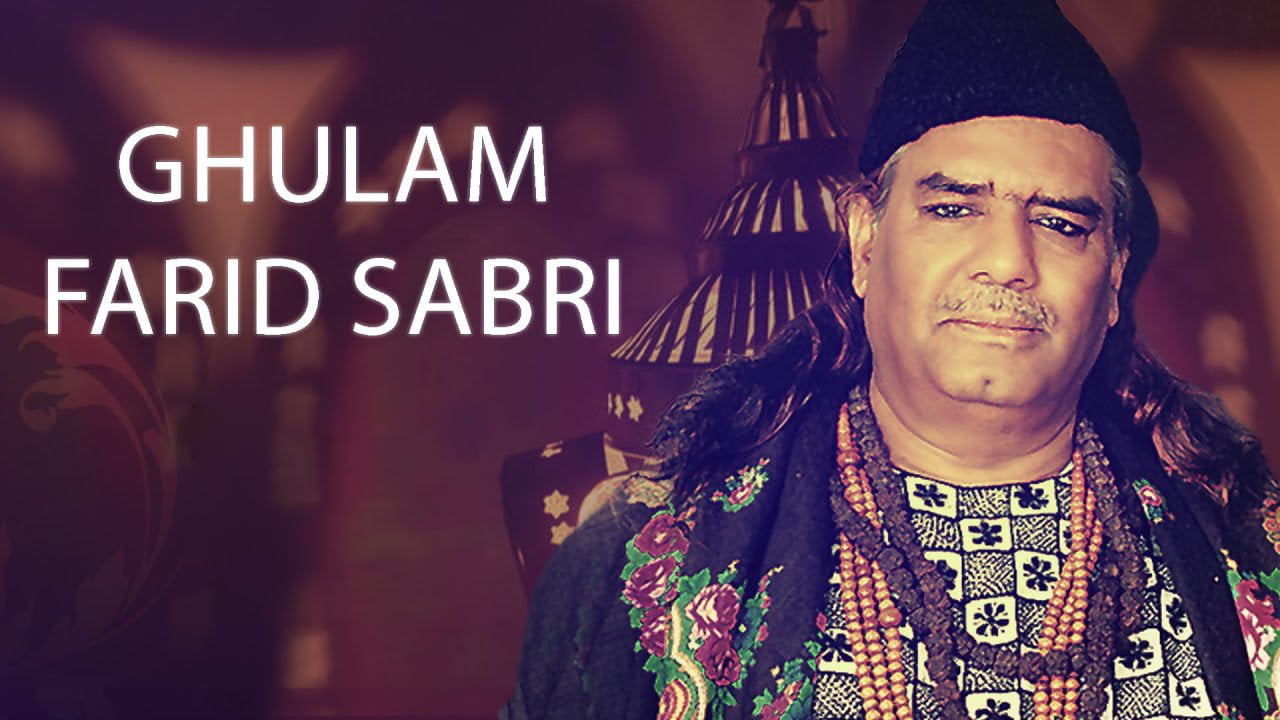
Life of Ghulam Farid Sabri:
He was conceived in Kalyana, a town in the region of Rohtak in Punjab, British India in 1930. His family’s melodic heredity extends back a few centuries, to the age of the Mughal sovereigns. His family guarantees direct plunge from Mian Tansen, the unbelievable artist of the court of Akbar the Great, the Mughal sovereign. Mehboob Baksh Ranji Ali Rang, his fatherly granddad, was an ace artist of his time; Baqar Hussein Khan, his maternal granddad, was an extraordinary sitarist. His family has a place with the Sabriyya request of Sufism, thus the last name Sabri. Haji Ghulam Farid Sabri was brought up in Gwalior. In his childhood, he needed to get some distance from the world and live in the wild. Be that as it may, his mom’s harsh reproach turned him back to his obligations. At six years old, Ghulam Farid initiated his proper guidance in music under his dad, Inayat Hussain Sabri. Ghulam Farid Sabri was told in North Indian traditional music and Qawwali. He was likewise taught in the playing of the harmonium And Tabla. Before Starting To Learn Music, Haji Ghulam Farid Sabri Along with his Father Visited The Shrine Of Sufi Saint Khwaja Ghaus Muhammad Gwaliori In Gwalior To Seek Blessings[1].
Ghulam Farid Sabri at first took in music from his dad Ustad Inayat Hussain Sabri and numerous other melodic instructors (Ustad) in Gwalior. Afterward, Ghulam Farid Sabri and his more youthful siblings Maqbool Ahmed Sabri, And Kamaal Ahmed Sabri encouraged their insight into music under Ustad Fatehdin Khan, Ustad Ramzan Khan, Ustad Kallan Khan, Ustad Latafat Hussein Khan Rampuri, And their otherworldly ace Hazrat Hairat Ali Shah Warsi[1].
After Migration to Pakistan:
Following the autonomy of Pakistan in 1947, his family was evacuated from their local town and was shipped to an exile camp in Karachi, Pakistan. Conditions in the camp were woeful, food was scant and costly, and the compensations for difficult work were scarcely enough to support life[1]. Ailing health was overflowing and carried with it scourges of tuberculosis and looseness of the bowels. Ghulam Farid got a new line of work via conveying groups of blocks for the administration house building or by breaking rocks to construct streets. Around evening time, practically without any assistance, he assembled his own home, step by step, to protect his family. Inevitably, he turned out to be sick. Exhausted, he was advised by a doctor that because of the state of his lungs, he could never again have the solidarity to sing. Despondently, he went to his dad for counsel and the exhortation he was given was uncompromisingly intense. Consistently for the following two years, he would need to sit in the camp for four to five hours making zikr. Each one of those days he bore the scars of beatings with wood sticks and stones tossed by his drained, restless neighbors and fights he was in when they were resolved to stop him; however, he would not be stopped and, as time passed by, his lungs became more grounded and his glorious voice was shaped. Before long, Ghulam Farid began to blend in with a little gathering of individuals who acknowledged Qawwali[1].
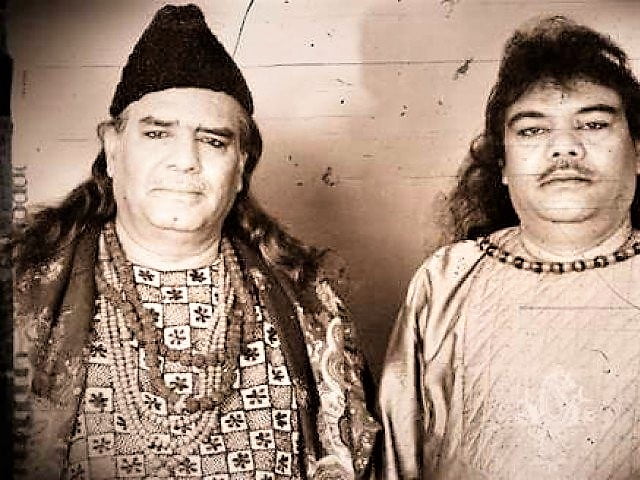
Death:
The prior night he kicked the bucket, Ghulam Farid Sabri and Sabri Brothers were going to visit Germany soon thereafter. His appearances in Britain and the United States set an example and started to assemble a group of people for what has now come to be known as ‘World Music’. Ghulam Farid Sabri passed on 5 April 1994 in Liaquatabad, Karachi following an enormous coronary failure. He kicked the bucket in transit to a clinic and adjacent to him was his dearest more youthful sibling, Maqbool Ahmed Sabri. He kicked the bucket in the arms of his more youthful sibling Maqbool Ahmed Sabri. His burial service was gone to by around 40,000 grievers. He was covered at Paposh Qabristan, in close by Nazimabad[1].
Qawali in featured films[1]:
- Mera Koi Nahin Hai Teray Siwa appeared in the 1965 film Ishq-e-Habib,
- Mohabbat Karne Walo Hum Mohabbat Iss Ko Kehtain Hain in the 1970 film Chand Suraj,
- Aaye Hain Tere Dar Pe Tau Kucch Le Kay Jaaen Gay in the 1972 film Ilzam,
- Baba Farid Sarkar in the 1974 Punjabi film Sasta Khoon Mehenga Paani,
- Bhar Do Jholi Meri Ya Muhammad in the 1975 film Bin Badal Barsaat,
- Teri Nazr-e-Karam in the 1976 film Sachaii,
- Aftab-e-Risalat in the 1977 Indian film Sultan-e-Hind,
- Mamoor horha hai in the 1977 film Dayar-e-Paighambran
- Tajdar-e-Haram in the 1982 film Sahaaray.
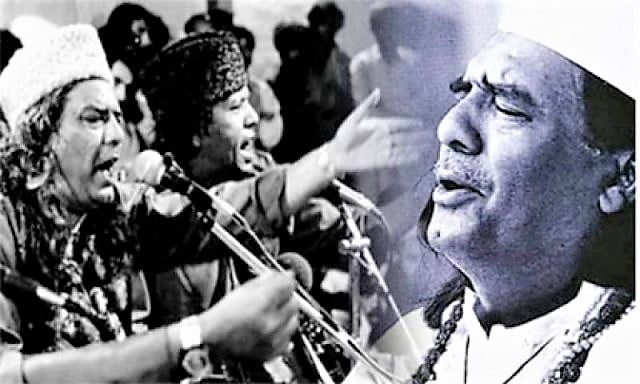
Awards[1]:
- Pride of Performance
- Spirit of Detroit Award
- Khusro Rang
- Bulbul E Pak O Hin
- Charles De Gaulle Award
- The Doctorate Degree Award
Qawwal Bahaud-din Khan:
Ustad Bahauddin Khan is viewed as one of the truest Qawwals of the old-style school of Delhi. His progenitors track there heredity back to the hours of Hazrat Amir Khusrow. He was likewise an entertainer at the royal residence of Nizam of Hyderabad however left it in 1956 to relocate to Karachi, Pakistan. He was skilled in both Urdu and Farsi Kalam which is shown in his Qawwalis. Ustad Bahauddin Khan Qawwal (1934 – February 3, 2006) Every one of the five of his children – Muhammad Najmuddin (brought into the world 1967), Saifuddin Mehmood (brought into the world 1971), Zafeeruddin Ahmed (brought into the world 1977), Mughisuddin Hassan (brought into the world 1979) and Ehtishamuddin Hussain (brought into the world 1981) – have emulated his example[2].
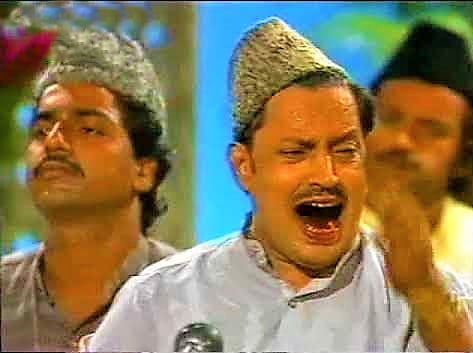
Customary Qawwali melody legacy from the city of Karachi can even now be seen and found in a little neighborhood in Karachi called Qawwali Gali in the Saddar Town territory, where a road is named after Bahauddin Qawwal. Bahauddin Khan is slid from a group of performers who follow their family back to the times of Amir Khusrow in the thirteenth century India. To spread Islam all through South Asia, Amir Khusrow united twelve youngsters (12 Kids Band), and by and by prepared them in singing and performing Qawwali, a sort of gave Sufi music. He named Mian Salamat the head of this gathering, which was named the Qawwal Bachche (qawwal kids). Qawwal Bachche, thus, instructed Qawwali other striving for understudies[2].
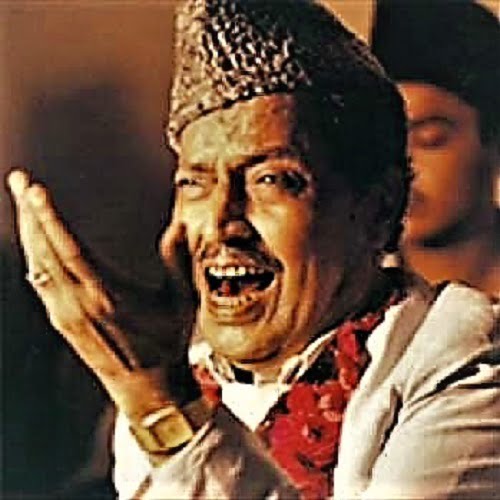
Career:
He started giving public exhibitions, and won prizes and approval, from the early age of six, exclusively and as a functioning individual from the gathering Manzoor Niazi Qawwal and gathering. In 1947, he was finished as Nunhay Raagi, in 1949 he got a Certificate of Performance, and in 1951 earned the title of Nunhay Hind Raagi from the Indian Prime Minister. In 2000, he was granted the title Tamgha-I-Imtiaz by the President of Pakistan, and in 2002 earned the title of Ustad from the Vice President of Mauritius and got a Gold Medal and Commemorative Shield from the Minister of Arts and Culture. In 2003, he got the “for the sake of Allah” Award from Viqar-e-Adab, an association working for the restoration, spread, improvement, and advancement of expressions and culture[2].
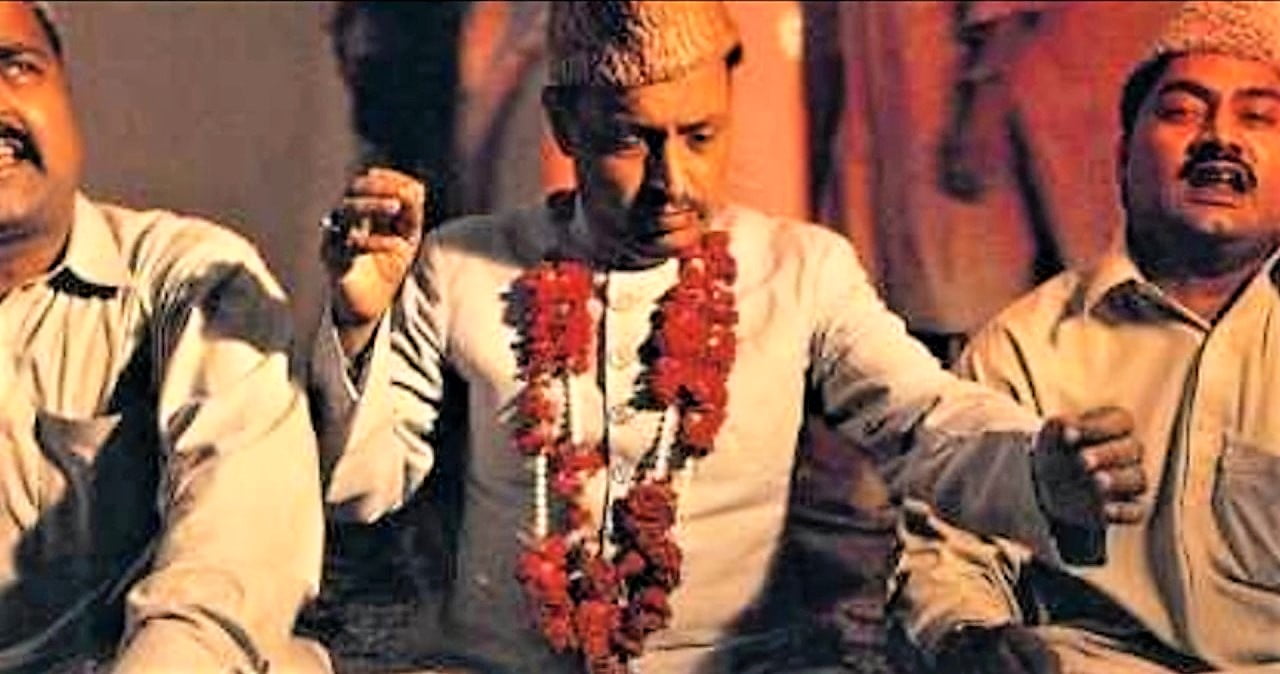
Qawali of Qawwal Bahaud-din Khan[3]:
- Man Qunto Maula (https://www.thesufi.com/sufimusic/ustad-bahauddin-khan-qawwal/mann-kunto-maula-ustad-bahauddin-khan.html)
- Qalandaram Mastam Kalam Hazrat Bou Ali Qalandar (Qalandaram Mastam Kalam Hazrat Bou Ali Qalandar – Ustad Bahauddin Khan Qawal Haidreyam)
- A Roshan Az Qamar (Ke Roshan Az Qamar – Kalam Amir Khusro – Ustad Bahauddin Khan Qawwal)
- Aaj Rang Hai (Aaj Rang Hai – Bahauddin Qawwal)
- Lal Shahbaz Qalandar (Lal Shahbaz Qalandar – Ustad Bahauddin Khan Qawwal)
- Manam Mehve Jamal E Ouu (Manam Mehve Jamal E Ouu – Ustad Bahauddin Bou Ali Qalander)
- Man Lago Yaar (Man Lago Yaar – Ustad Bahauddin Khan)
- Mujhe Hosh Nahin Jigar Muradabadi (Mujhe Hosh Nahin Jigar Muradabadi – Ustad Bahauddin Khan)
Qawwal Aziz Mian:
Aziz Mian Qawwal was born on 17th April 1942 in Delhi, British India, and died on 6th December 2000. He was one of the Pakistani leading traditional Qawwali singers and was famous for his Ghazals with a unique way of singing Qawwali. Aziz was one of the most famous qawwals in South Asia and still, people are listening to their qawwali’s. His most famous and longest commercially released qawwali was “Hashr Ke Roz Yeh Poochhunga” which was more than 116 minutes. He came to Infront of Public as Aziz Mian Marathi. The word Mairthi came from the word Meerut, which is a city in Northern India, and he came from Northern India to Pakistan in 1947. When he was 10 years old, he started the profession of qawwal under the teaching of Ustad Abdul Waheed Khan. He got the training of about 16 years at Data Ganj Baksh School of Lahore and obtained a degree in the Urdu Literature from the University of Punjab, Lahore[4].
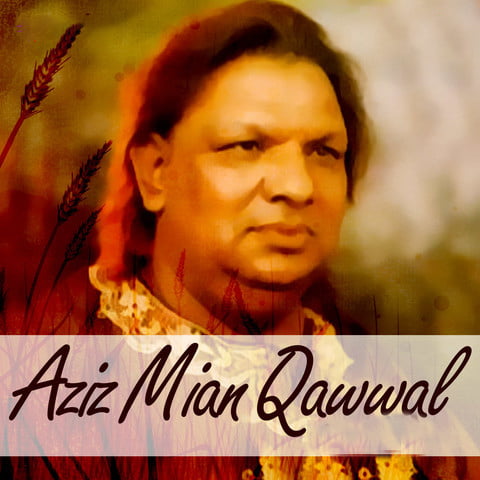
Aziz Mian’s voice was one of the most traditional Qawwals and powerful, he was a prominent qawwal to write his lyrics. His most successful performance in 1966 when he went for Iran, Muhammad Raza Pahlavi. He got the 1st Prize and gold medal from the Shah of Iran. After that, his nickname becomes “Fauji Qawwal”. His focus on the religious things not on the entertainment qualities, such that the listeners enjoyed more romantically about Islam. Due to his serving and philosophy, the Government of Pakistan gave him the “Pride of Performance” in the year of 1989. He liked the discussion on the religious and Sufi paradoxes in his Qawwalis[4].
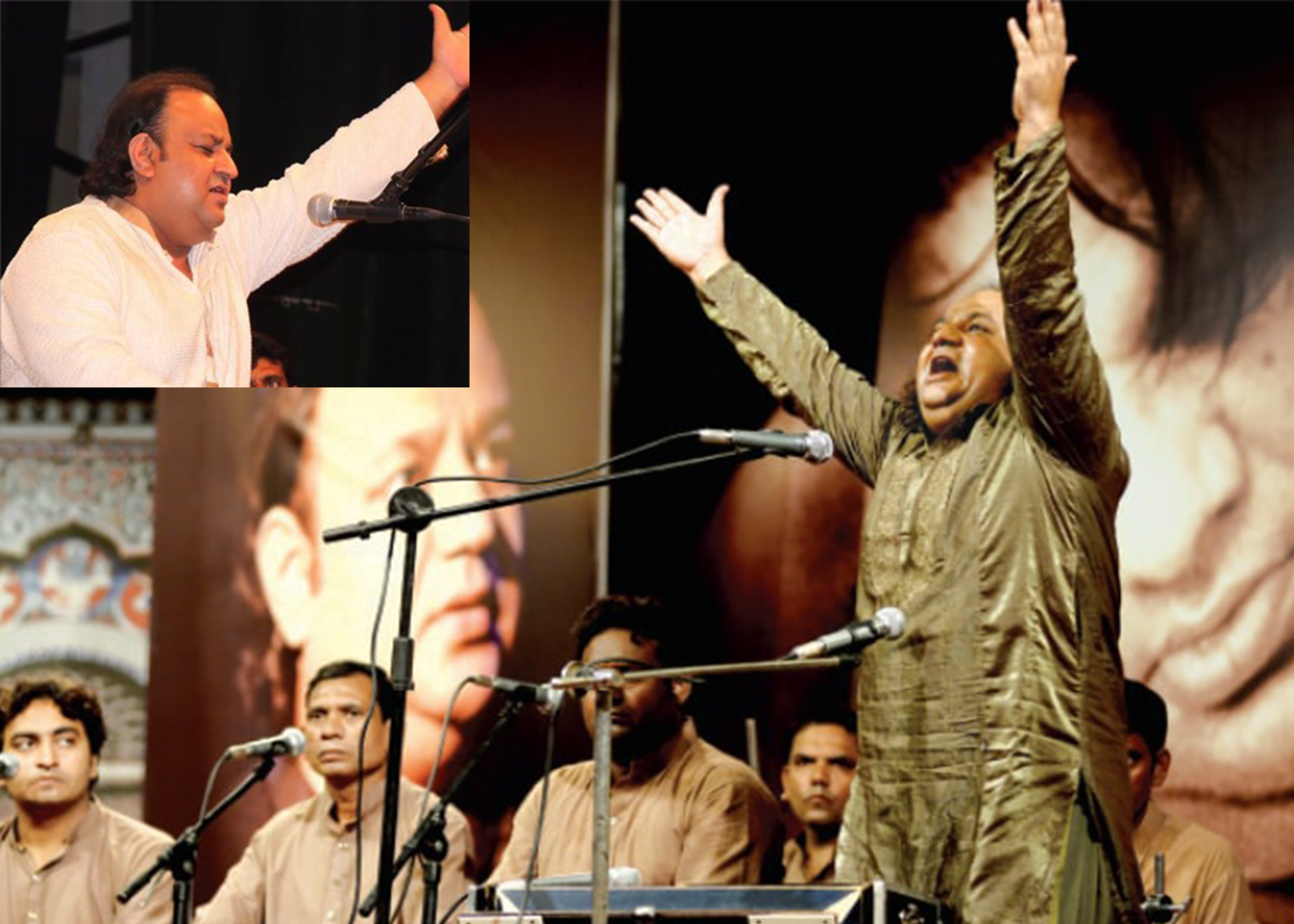
He directly addressed ALLAH and told about the weakness of a man. More, he used the poetry of Allama Muhammad Iqbal, Safiq, and Qateel Shifai in his qawwalis. He was ill due to hepatitis in Tehran, Iran, and died on 6th December 2000. He was in Iran at the invitation of the Government of Iran for performing on the occasion of Imam Ali’s death anniversary. His dead body was brought to Pakistan and was buried in Multan in the graveyard of Nau Bahar Shah[4].
Awards of Aziz Mian:
He got the pride of performance from the Government of Pakistan[4].
Maqbool Ahmed Sabri:
Maqbool Ahmad Sabri was born on 12th October 1945, he was a Pakistani Qawwali Singer and prominent member of the Sabri Brothers which was a well known Qawwali group in Pakistan after Pakistan came into being and was more famous in the 1970s to 1990s. Sabri brothers were honored with the pride of performance by the President of Pakistan in 1978. He got his early education from his father Ustad Inayat Hussain Sabri and his brother Ghulam Farid Sabri. His family background from the musicians. His qawwali lyrics are not only for singing but also earned a niche for himself as a ghazal and geet singer[5]. He was born in a low-income family in the city of Kalyana, India in the year of 1941. He formed his group with his brothers at the age of 11 years and famous in 1958. His first recording of the Urdu language “Mera Koi Nahi Hai” was sung under the EMI Pakistan Label which leads to becoming successful in that era and famous[6].
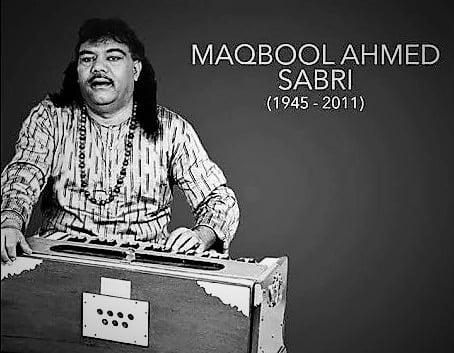
These brothers were appeared internationally and were one of the first ones to introduce qawwalis to the West when they performed at New York’s Carnegie Hall in the year of 1975. His death of Maqbool is being felt by the entire nation and especially by his followers and juniors in the music industry. He said that[6];
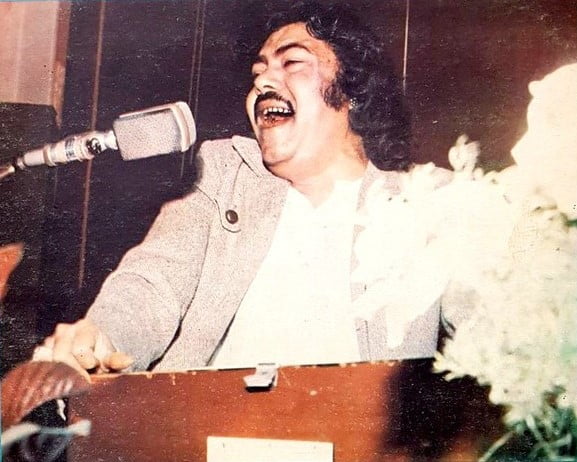
“I was in the seventh grade when I had just learned to play the keyboard and one day a family member introduced me to Maqbool Sabri. Despite my nervousness and hesitation, the legendary singer said to me, ‘Please get your Baja (keyboard) and start playing with me’. To date, that moment inspires me to work harder,” says Ahsan Bari, an upcoming music producer and a faculty member at Neem Tree School of Music. “Even if you couldn’t understand the language, his style of singing was good enough to bring you the message clearly; only legends can do that. [6]”
He was a founding member of the Sabri brothers which took to the West devotional music as qawwali. He was traditionally sung at the shrines of saints. His roots lie in Persia and today is the music that is particularly famous in Pakistan, India, and Afghanistan. His purpose in singing qawwali was to spread Islam’s love in everyone’s heart. He had a heart problem and died of a heart attack at the age of 65 years, he was treated in a hospital in South Africa for about 2 months. He died on Wednesday 21st September 2011 due to a Cardiac arrest and was buried in Pakistan near his brother Ghulam Farid Sabri’s grave[7].
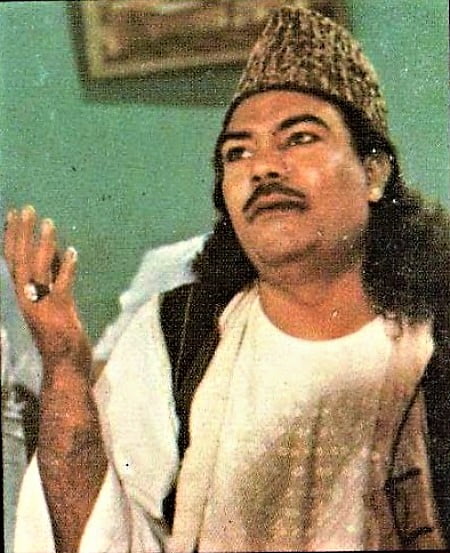
Awards[5]:
- He got the “Pride of Performance” from the President of Pakistan in 1978 to the whole Sabri brothers’ group.
- Spirit of Detroit award by the Federal government of the United States for Ghulam Farid Sabri in the year of 1981.
- Khusro Rang for both Ghulam Farid Sabri and Maqbool Ahmed Sabri from India in the year of 1981.
- Bulbul E Pak O Hind by the President of India and President of Pakistan for both Ghulam Farid Sabri and Maqbool Ahmed Sabri in the year of 1977.
- Charles De Gaulle award by the Charles de Gaulle for both Ghulam Farid Sabri and Maqbool Ahmed Sabri in the year 1983.
- The Doctorate Degree was awarded to The Sabri Brothers as an honor for the super performance of hit record “Shikwa Jawab E Shikwa (of Allama Muhammad Iqbal)”, by the University of Oxford.
- Tansen Samman (India) was awarded by Maqbool Ahmed Sabri in 2005 by the Government of Madhya Pradesh, India.
Nusrat Fateh Ali Khan:
Nusrat Fateh Ali Khan was born on 13th October 1948 and was famous as a Pakistani Musician and singer. His voice was like a magician and was recorded, primarily a singer of qawwali, the devotional music of the Sufis. As a singer, he had an extraordinary voice and high performance at the intensity for several hours. He was born in a family of musicians and singers, developed an early interest in the art form. His family was from a low-income house, his father wanted him to become a doctor or an engineer. But he was interested in the practice of Qawwali. He soon became a singer and famous in public at the age of 16 years old. He established himself as the greatest qawwals of his generation throughout Pakistan. His maturity and performance gave the qawwali a new life and unique style of performing tempo, and voice ranges. He became famous in a very short range of times and got respect from other countries which including India, Japan, U.S. He soon got the title of “Shahenshah-e-Qawwali” which means “The King of Kings of Qawwali”[8].
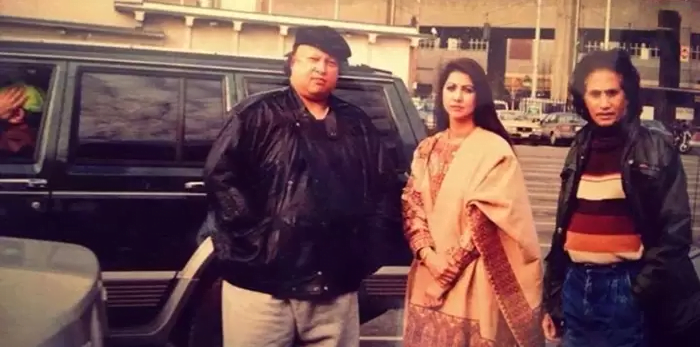
The early life of Nusrat Fateh Ali Khan:
His family came from India after the war between India and Pakistan in the year of 1947. He lived at Hazara, Faisalabad, Punjab, Pakistan. His father Fateh Ali Khan was a Musicologist, vocalist, instrumentalist, and Qawwal. His father died in the year of 1964 when he was about at the age of 16 years old. After his father’s death, He said, “his father came into a dream and instructs him to sing”. Then Nusrat Fateh Ali Khan gave the first performance at his father’s funeral ceremony after 40 days. Soon he gained much famous and established himself throughout Pakistan as one of the best known contemporary qawwals of his era. He had a powerful voice and high stamina. He could perform at a high level of intensity for several hours. He was gone together by a table, harmonium, and backing vocals in concerts. Soon he got famous in Pakistan and Khan performed at the World of Music, Arts and Dance (WOMAD) festival in London in the year of 1985 and visits Japan in 1987 at the invitation of the Japan Foundation. In 1989, he performed at the Brooklyn Academy of Music, New York. He was most popular in the 1990s and served as a Visiting Artist in the Ethnomusicology department at the University of Washington, Seattle, in 1992-1993. He released many albums during his career and film on the international level. He worked with the Canadian Musician Brook on the Albums “Mustt Mustt” in the year of 1990 and “Night Song” in the year of 1996. He also worked with Peter Gabriel on the soundtrack “The Last Temptation of Christ” in the year of 1988 which gave him the chance to blend qawwalis with western music[8].
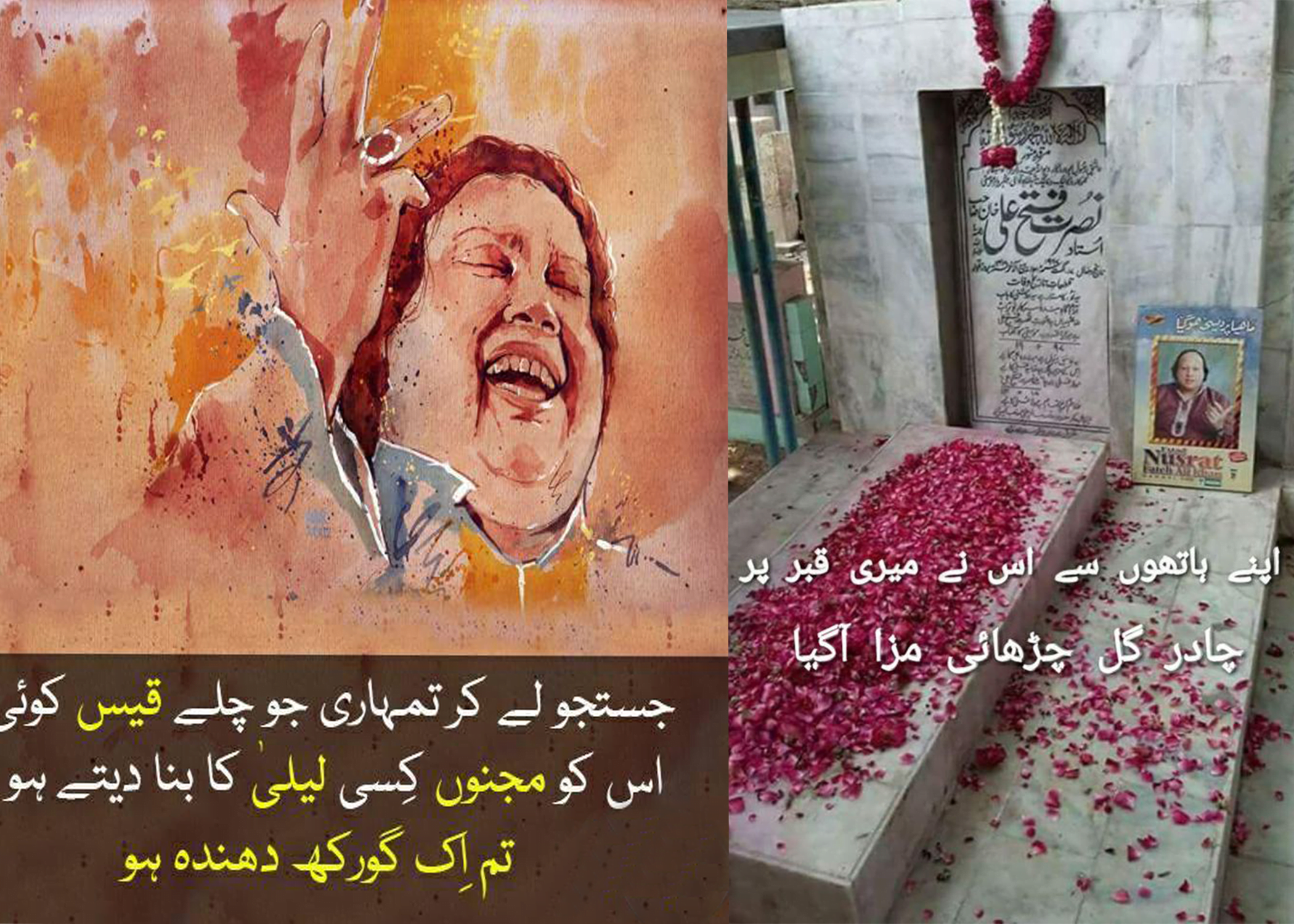
His most favorite songs are performed in Pakistan and India are famous;
Songs[8]:
- Koi Jane Koi Na Jane
- Saya bhi Sath Jab Chor Jaye
- Dulhe Ka Sehra
His song “Vande Mataram” was released to celebrate at the 50th Anniversary of India’s independence[8].
Major Works[8]:
Nusrat Fateh Ali Khan was one of the first artists to became famous qawwali to Western audiences. Some of his famous albums are;
Albums[8]:
- The day
- The Night
- The Dawn
- The Dusk
- Night Song
- Sangam
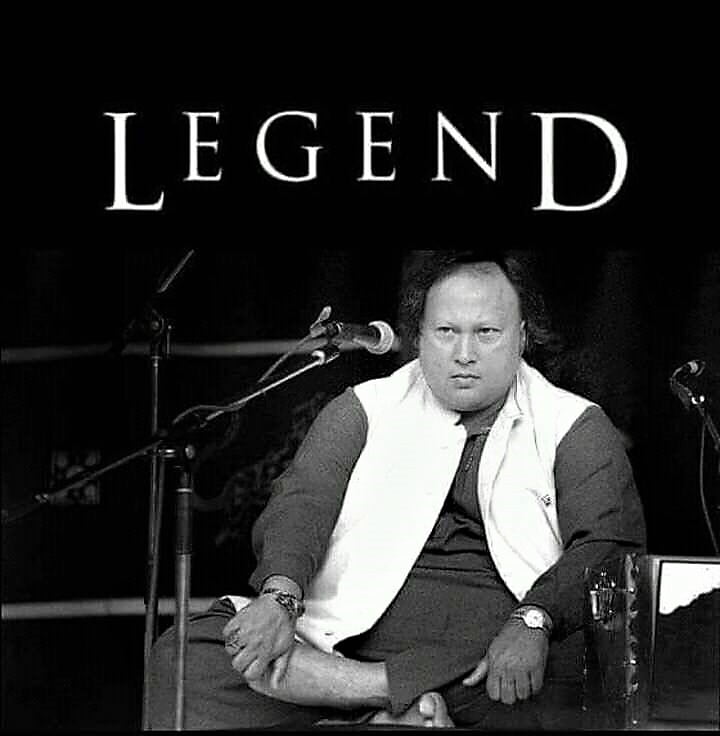
Awards[8]:
- Pride of Performance for his contribution to Pakistan Music in the year of 1987.
- Honored from the UNESCO music price in the year of 1995.
- He was included in CNN’s list of the 20 most iconic musicians from the past 50 years.
References:
1. wikipedia. 1st October 2020; Available from: https://en.wikipedia.org/wiki/Ghulam_Farid_Sabri#Awards_and_recognition.
2. qwe.wiki. 1st October 2020; Available from: https://no.qwe.wiki/wiki/Qawwal_Bahauddin_Khan.
3. thesufi. 1st October 2020; Available from: https://www.thesufi.com/sufimusic/ustad-bahauddin-khan-qawwal.html.
4. last.fm. 1st October 2020; Available from: https://www.last.fm/music/Aziz+Mian/+wiki
5. wikipedias. 1st October 2020; Available from: https://en.wikipedia.org/wiki/Maqbool_Ahmed_Sabri.
6. tribune. 1st October 2020; Available from: https://tribune.com.pk/story/258011/maqbool-ahmed-sabri-saying-goodbye.
7. theguardian. 1st October 2020; Available from: https://www.theguardian.com/music/2011/oct/12/maqbool-sabri-obituary.
8. thefamouspeople. 1st October 2020; Available from: https://www.thefamouspeople.com/profiles/nusrat-fateh-ali-khan-6756.php \.
